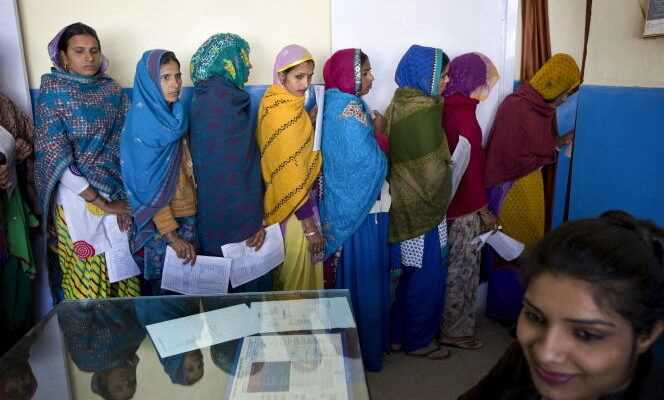The decision was carefully considered. Two years after the birth of her second child and after having wrested the agreement of all members of her family, Annu Kumari, 25, was sterilized on July 16, 2021. The young woman lives with her in-laws, as is often the case in India, and the couple fought for over a year before the elders accepted their choice.
The procedure took place in a hospital in Nawada district, not far from their village of Hardiya, in the state of Bihar, one of the poorest in India. “I didn’t know exactly what the operation was, but I know that thanks to her, I will have no more children. It’s a real relief ”, breath Annu Kumari, contacted by phone. She had the operation the same day as her neighbor and five other women.
Like Annu Kumari, millions of Indian women choose sterilization as a method of contraception. In India, 37.9% of married women of childbearing age are sterilized, i.e. more than one in three women, according to the latest national family health survey, carried out between 2019 and 2021. The phenomenon, both rural and urban, is even increasing compared to the previous 2015-2016 survey, where the rate of sterilized women stood at 36%.
“With my husband, we made this decision in order to be able to take the best care of the two children we already have. If our family had grown, our income would not have followed “, explains Annu Kumari, a housewife whose husband, a daily worker, can hope to earn at best 250 rupees (less than 3 euros) a day. “It is very often the most marginalized and less educated women who undergo sterilization”, notes Poonam Muttreja, director of the Indian Population Foundation, a non-profit organization that works on these issues.
Mass operations until 2016
Annu Kumari and her husband sought advice from one of the government-accredited medico-social workers. They are present in every local health center in rural areas. “She presented us with all the options: contraceptive injections, the pill or even the condom. But we chose sterilization because we were sure we didn’t want any more children ”, assures Annu Kumari.
In India, only 5.1% of women take the contraceptive pill, just over 2% use intrauterine methods, and less than 1% choose contraceptive injections, according to the National Health Survey. family. In comparison, in France, more than 30% of women took the contraceptive pill in 2016, and permanent sterilization remained rare (4.5% of women), according to a barometer from Public Health France.
You have 54.15% of this article to read. The rest is for subscribers only.
